Gardeners Crook Log: Cultivating Community and Green Spaces
Introduction to Gardeners Crook Log
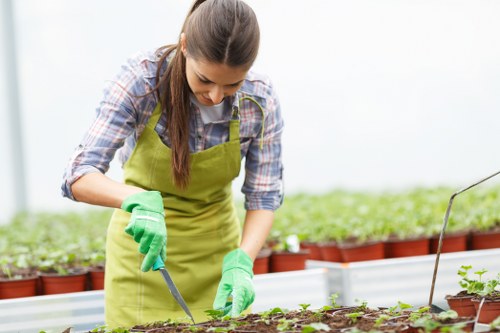
Welcome to Gardeners Crook Log, a vibrant community dedicated to fostering a love for gardening and green living. Nestled in the heart of Crook Log, this space serves as a hub for both novice and experienced gardeners alike.
At Gardeners Crook Log, the focus is on creating a sustainable and thriving environment where individuals can cultivate their own gardens, share knowledge, and connect with like-minded neighbors.
Whether you have a green thumb or are just starting your gardening journey, Gardeners Crook Log offers resources and support to help your garden flourish.
The Importance of Community Gardening
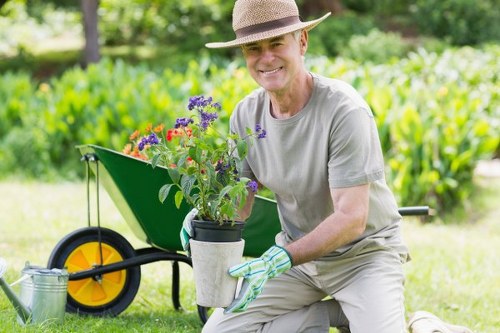
Community gardening plays a pivotal role in bringing people together, fostering a sense of belonging, and enhancing the local environment. Gardeners Crook Log exemplifies these benefits by providing a shared space where community members can collaborate and grow together.
By participating in community gardening, residents can enjoy fresh produce, reduce their carbon footprint, and promote biodiversity within the Crook Log area.
Moreover, community gardens like Gardeners Crook Log offer educational opportunities, teaching valuable skills related to plant care, sustainability, and eco-friendly practices.
Facilities and Features at Gardeners Crook Log
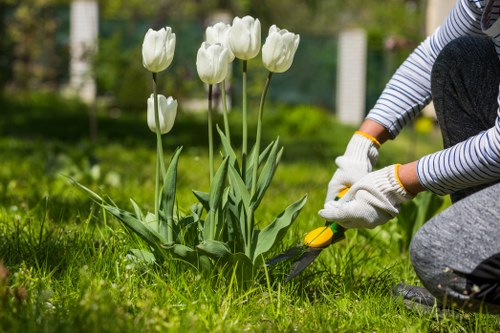
Gardeners Crook Log boasts a variety of facilities designed to support and inspire its members. From well-maintained plots to communal toolsheds, every aspect is tailored to facilitate efficient and enjoyable gardening.
The garden is equipped with irrigation systems, composting areas, and designated spaces for workshops and community events. These features ensure that gardeners have everything they need to cultivate healthy plants and participate in community activities.
Additionally, Gardeners Crook Log maintains pathways and seating areas, providing a serene environment for relaxation and socialization among gardeners.
Gardening Tips for Crook Log Residents
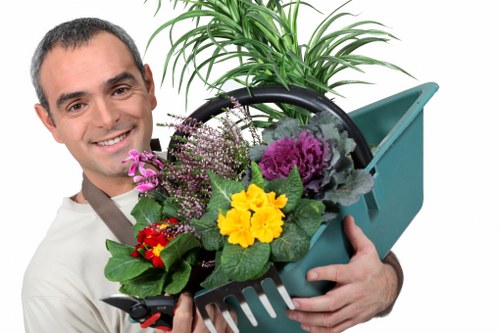
Gardening in Crook Log comes with its unique set of challenges and opportunities. Here are some tips to help you get started:
- Soil Quality: Test your soil to understand its composition and amend it with compost or organic matter as needed.
- Plant Selection: Choose plants that are well-suited to the local climate and soil conditions of Crook Log.
- Watering Practices: Implement efficient watering techniques, such as drip irrigation, to conserve water and ensure your plants receive adequate moisture.
By following these guidelines, you can create a thriving garden that enhances both your home and the community.
Seasonal Gardening in Crook Log
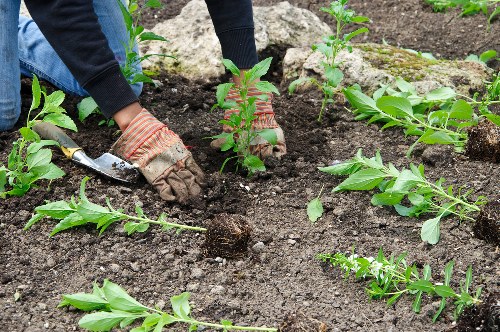
Understanding the seasonal changes in Crook Log is essential for successful gardening. Each season brings its own set of tasks and considerations:
- Spring: Time for planting new seeds and preparing the soil.
- Summer: Focus on regular maintenance, including weeding and pest control.
- Autumn: Harvest crops and prepare gardens for the winter months.
- Winter: Plan for the upcoming gardening season and protect plants from frost.
By adapting your gardening practices to the seasons, you can ensure a productive and resilient garden year-round.
Local Events and Workshops

Gardeners Crook Log regularly hosts events and workshops aimed at enhancing gardening skills and fostering community spirit. These activities include:
- Workshops: Learn about composting, organic gardening, and pest management from experts.
- Seed Swaps: Exchange seeds with fellow gardeners to diversify your plant collection.
- Harvest Festivals: Celebrate the season's bounty with food, music, and gardening exhibitions.
Participating in these events not only expands your gardening knowledge but also strengthens community bonds.
Nearby Areas and Their Gardens

The Crook Log area is surrounded by numerous neighborhoods, each offering unique gardening opportunities. Here are some of the closest areas to Gardeners Crook Log:
- Northwood: Known for its vibrant flower gardens and annual garden shows.
- Beechwood: Features community orchards and fruit tree planting initiatives.
- Elmhurst: Offers extensive vegetable gardens and seasonal planting programs.
- Maple Grove: Home to several greenhouse facilities and exotic plant collections.
- Pinecrest: Focuses on sustainable gardening practices and eco-friendly projects.
- Riverdale: Boasts beautiful water gardens and aquatic plant displays.
- Sunset Park: Popular for its herbal gardens and medicinal plant workshops.
- Linden Heights: Features ornamental gardens and landscape design examples.
- Oakridge: Known for its large backyards and private community gardens.
- Cedar Valley: Offers nature trails and wildflower conservation areas.
- Willowbrook: Home to bonsai collections and intricate pruning workshops.
- Hazelwood: Features composting sites and organic farming projects.
- Birchwood: Known for its shade gardens and perennial plantings.
- Fox Meadow: Offers meadow restoration projects and native plant gardens.
Sustainability and Eco-Friendly Practices

At Gardeners Crook Log, sustainability is a core value. The community is committed to implementing eco-friendly practices that minimize environmental impact and promote a healthier ecosystem.
Key initiatives include:
- Rainwater Harvesting: Collecting and using rainwater for irrigation purposes.
- Composting: Recycling organic waste to enrich the soil naturally.
- Native Planting: Choosing native species that support local wildlife and reduce maintenance needs.
- Solar Energy: Utilizing solar panels to power garden facilities and reduce reliance on non-renewable energy sources.
These practices not only benefit the environment but also create a more resilient and self-sustaining garden community.
Getting Involved: Joining the Community Garden

Joining Gardeners Crook Log is a wonderful way to become part of a supportive and dynamic gardening community. Here’s how you can get involved:
- Membership: Sign up for a membership to secure a garden plot and access to community resources.
- Volunteer: Participate in garden maintenance, events, and educational workshops.
- Attend Events: Engage with fellow gardeners by attending workshops, seminars, and social gatherings.
- Share Knowledge: Contribute your gardening expertise by leading workshops or sharing tips with other members.
By actively participating, you can enhance your gardening skills while building lasting relationships within the Crook Log community.
Conclusion

Gardeners Crook Log is more than just a garden; it's a community where individuals come together to nurture plants, share knowledge, and create a greener, more sustainable environment.
Whether you're an experienced gardener or just starting out, Gardeners Crook Log offers the resources, support, and camaraderie needed to make your gardening endeavors successful and enjoyable.
Embrace the opportunity to connect with nature and your neighbors by becoming a part of Gardeners Crook Log today.
Frequently Asked Questions
1. How can I become a member of Gardeners Crook Log?
To become a member, visit our website and fill out the membership application form. You can also attend one of our introductory workshops to learn more about membership benefits.
2. What types of plants are best suited for Crook Log's climate?
Plants that thrive in Crook Log typically prefer temperate climates. Consider planting native species, vegetables like tomatoes and lettuce, and flowers such as daisies and sunflowers for optimal growth.
3. Are there any fees associated with joining the community garden?
Yes, there is a membership fee that covers the cost of garden plot maintenance, access to tools and facilities, and participation in community events. Detailed fee structures are available on our website.
4. Can I volunteer even if I don't have a garden plot?
Absolutely! Volunteering is open to all community members, regardless of whether they have a garden plot. We welcome assistance with maintenance, events, and educational programs.
5. What sustainability practices does Gardeners Crook Log follow?
We prioritize rainwater harvesting, composting organic waste, planting native species, and utilizing solar energy to minimize our environmental impact and promote a sustainable gardening environment.